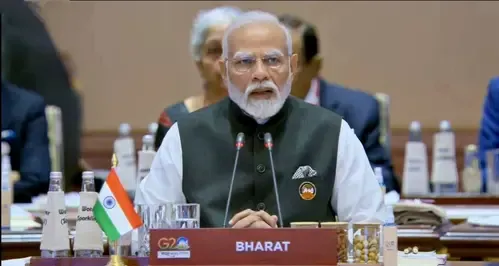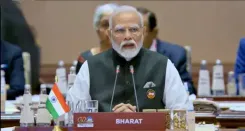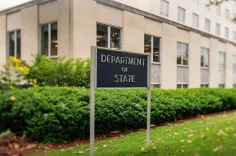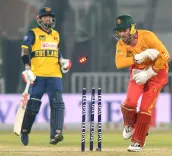Are US Strikes on Iran a Violation of International Law?

Synopsis
Key Takeaways
- US strikes on Iran are seen as unlawful.
- Owaisi criticizes US double standards on nuclear weapons.
- Iran may enhance its uranium enrichment significantly.
- Regional instability could affect Indians in the Middle East.
- Pakistan's role in the situation raises further questions.
Hyderabad, June 22 (NationPress) AIMIM president Asaduddin Owaisi has criticized the US strikes on Iran's nuclear sites, labeling them a breach of international law and the United Nations charter.
The MP from Hyderabad accused the US of attempting to distract from the genocide of Palestinians in Gaza through these military actions.
Owaisi expressed confidence that such assaults will not dissuade Iran from pursuing its nuclear program.
He informed reporters that the US strikes on three nuclear facilities in Iran are infringing upon international statutes, the United Nations charter, the NPT (Treaty on the Non-Proliferation of Nuclear Weapons), and the US Constitution.
He emphasized that according to the US Constitution, military action cannot be initiated without Congress's consent.
Owaisi raised concerns about the US's inconsistent stance regarding Israel’s nuclear arsenal. “There is little discourse about Israel, which possesses 700-800 nuclear warheads, has not ratified the NPT, and denies access to IAEA inspectors,” he stated.
The AIMIM leader predicted that Iran will achieve 90% Uranium enrichment within the next 5-10 years. “Iran will not be halted. It may withdraw from the NPT,” he asserted.
Owaisi further opined that in response to US actions against Iran, Arab and Muslim nations might pursue nuclear capabilities to counter Israel’s dominance. “You will not be able to prevent them,” he warned.
He mentioned that US intelligence has confirmed that Iran lacks nuclear weapons, referencing a statement from Tulsi Gabbard, the Director of US Intelligence.
Owaisi also expressed concern regarding the potential repercussions of a regional conflict for the 6 million Indians residing there, along with the significant investments and foreign remittances that they contribute.
He criticized Pakistan, questioning if Islamabad sought the Nobel Peace Prize for Trump for instigating war in the Middle East. “Did Pakistan's General (Army chief Asim Munir) dine with the US president for this?” he inquired.









